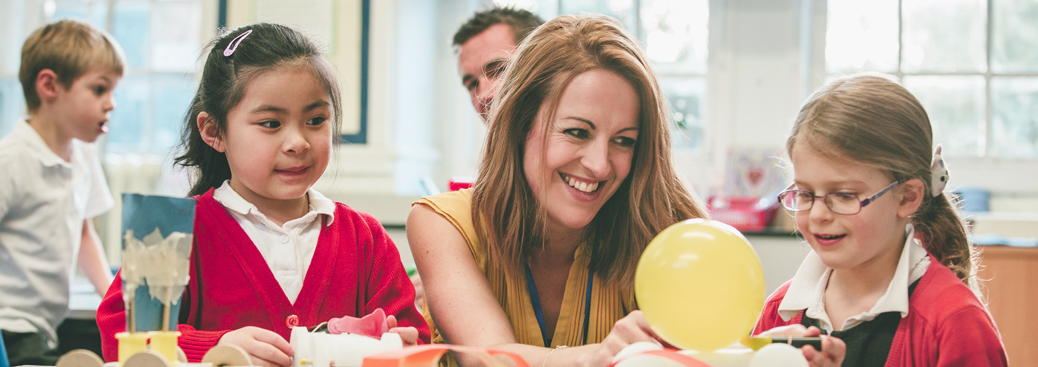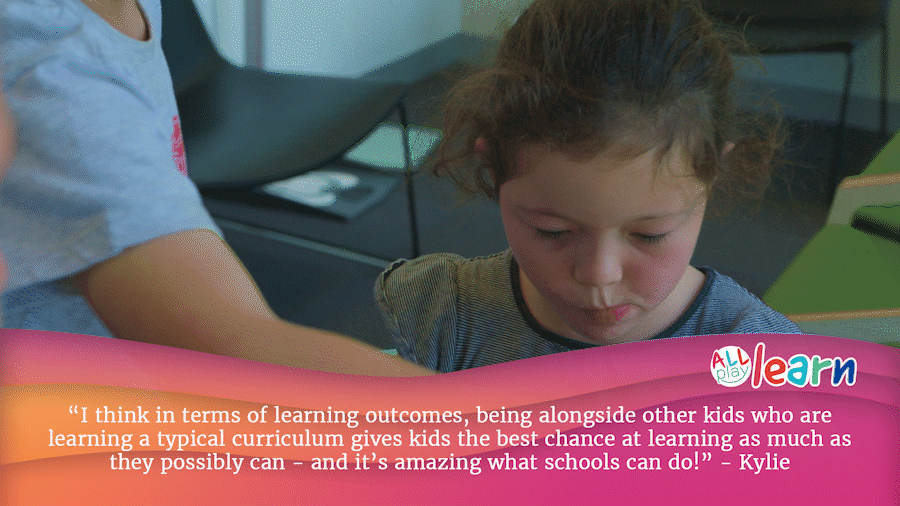Developing an
Inclusive School Culture
Here you will find a guide to developing an inclusive school culture, and AllPlay Learn resources that can support your school with the inclusion of students with disabilities and developmental challenges.

Illustrations of practice

School culture
- Create a whole-school approach to inclusion through establishing a school culture that celebrates diversity in all aspects of school life. See AllPlay Learn's Being different poster
- Develop an ‘Engagement and Inclusion Policy’ that promotes the value and importance of inclusion to all staff and students
- Welcome students with disabilities into the school community and support their transition from their previous school or early childhood education and care setting. Access AllPlay Learn's transitions page
- Educate students in the school community about disability and the rights of students with disabilities in an informed and sensitive manner, by using AllPlay Learn's peer information activity books
- Create a school environment that supports the safety, inclusion and well-being of students with disabilities in the classroom and playground
- Facilitate positive peer relationships and actively teach students how to be inclusive. Access more information about social inclusion

Relationships with families
- Get to know the strengths, abilities and aspirations of students with disabilities and involve them in decisions about their education. Download AllPlay Learn's Strengths and abilities communication checklist
- Work in partnership with students with disabilities and their families to create positive educational experiences and to help them achieve their learning goals. Access AllPlay Learn's guide to parent-teacher meetings and inclusive questions pages
- Consult with students and their families using Student Support Groups and Individual Learning Plans to maximise their learning


Staff training and support
- Educate all staff about their obligations as set out in the Disability Standards for Education to provide equitable access to education for students with disabilities
- Appoint an appropriately trained Leading teacher (or Co-ordinator) to support the full inclusion of students with disabilities and the ongoing professional learning of teachers
- Use evidence-based strategies when teaching and engaging with students with disabilities. We have provided a summary of strengths- and evidence-based strategies that cater for a broad range of disabilities on the inclusive teacher strategies page. For strategies for specific disabilities, access our disability strategies page, and for strategies to support students with disabilities with specific situations they may find challenging access our daily strategies page
- Use strength- and evidence-based strategies, resources and tools to differentiate the curriculum for children with disabilities. Teachers can learn more about this by taking part in the AllPlay Learn professional learning courses
- When engaging in activities or classes such as dance or organised physical activity (e.g. football), consider using some of the resources from our AllPlay Dance and AllPlay Footy programs. We have some great resources for dance teachers and footy coaches that may be suitable for you to use as a teacher
- Use evidence–based pedagogical methods and practice principles to differentiate the curriculum for students with disabilities
- Encourage peer support and collaboration among the staff to further teacher confidence and capacity to work with students with disabilities
- Partner with other schools to develop professional learning initiatives focussed on inclusion
- Identify and manage mental health risks in the workplace, and develop a proactive work environment that supports positive wellbeing in staff and children. For more resources on mental health in the workplace, visit Heads Up/

Access specialised support services
- Engage student support services who can provide allied health specialists such as psychologists and speech pathologists to support student learning
- Engage the visiting teacher service through referring students who would benefit from specialist support in the classroom

Student support and engagement
- Implement a student engagement policy that actively seeks to support students through learning key skills to enable positive behaviour, and through addressing structures surrounding the child that are contributing to the behaviour. Access more information on social skills, emotion regulation and the ABC approach to behaviour
- Support student well-being and self-regulation. Access AllPlay Learn's stories, student self-monitoring form, and a breathing and relaxation illustration of practice videos from Elsternwick primary school here


Take a tour
Take an online tour to learn more about how the AllPlay Learn resources can support children in educational environments.

